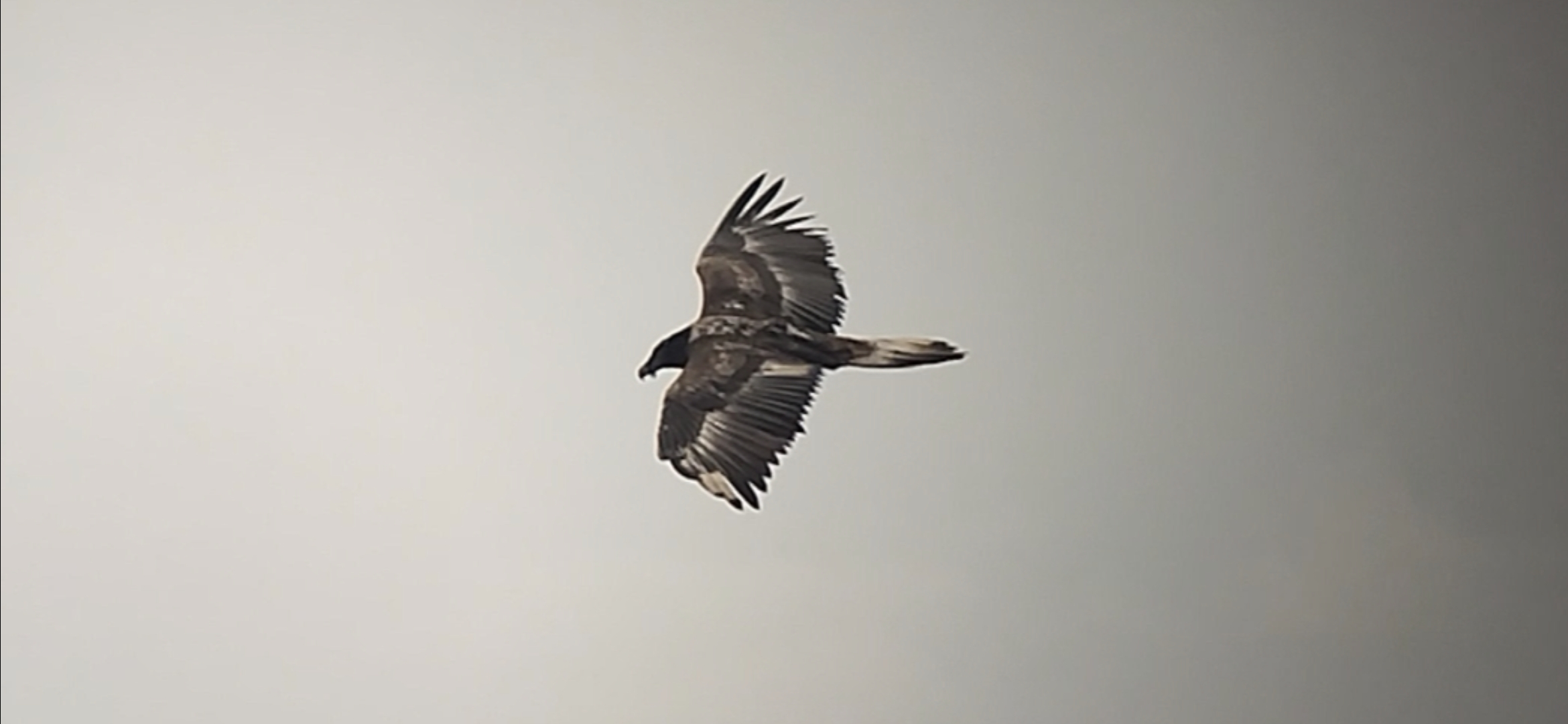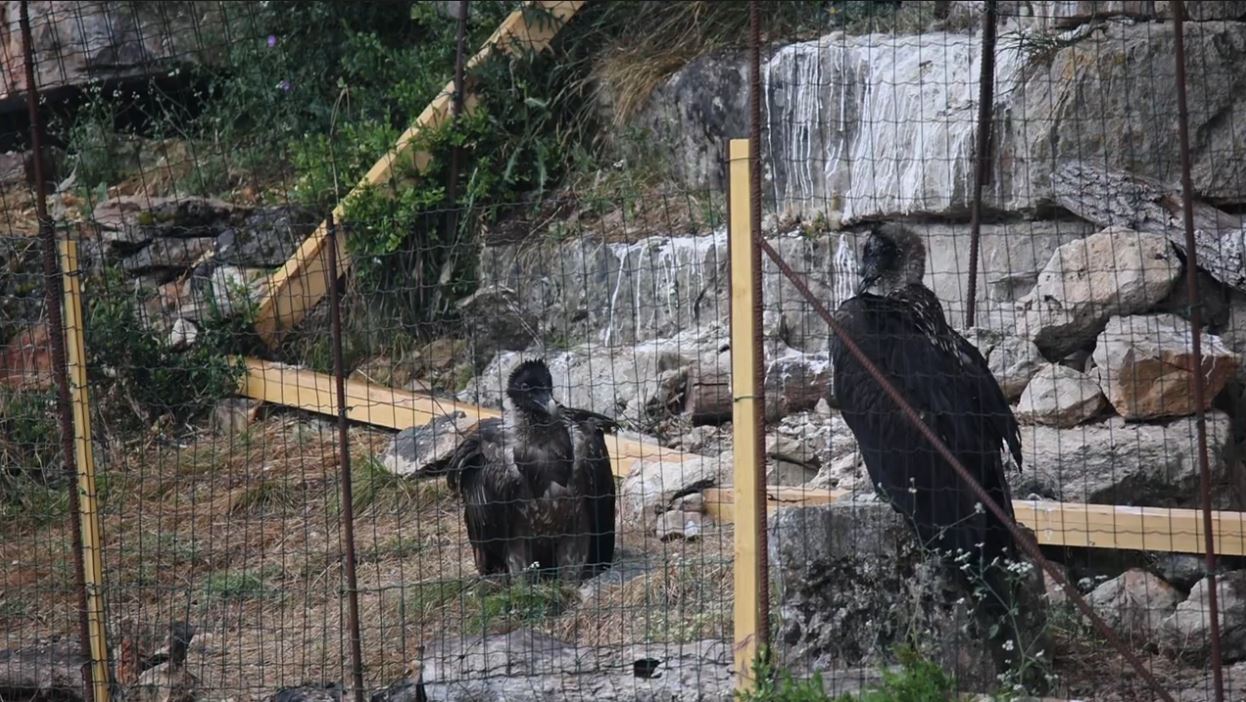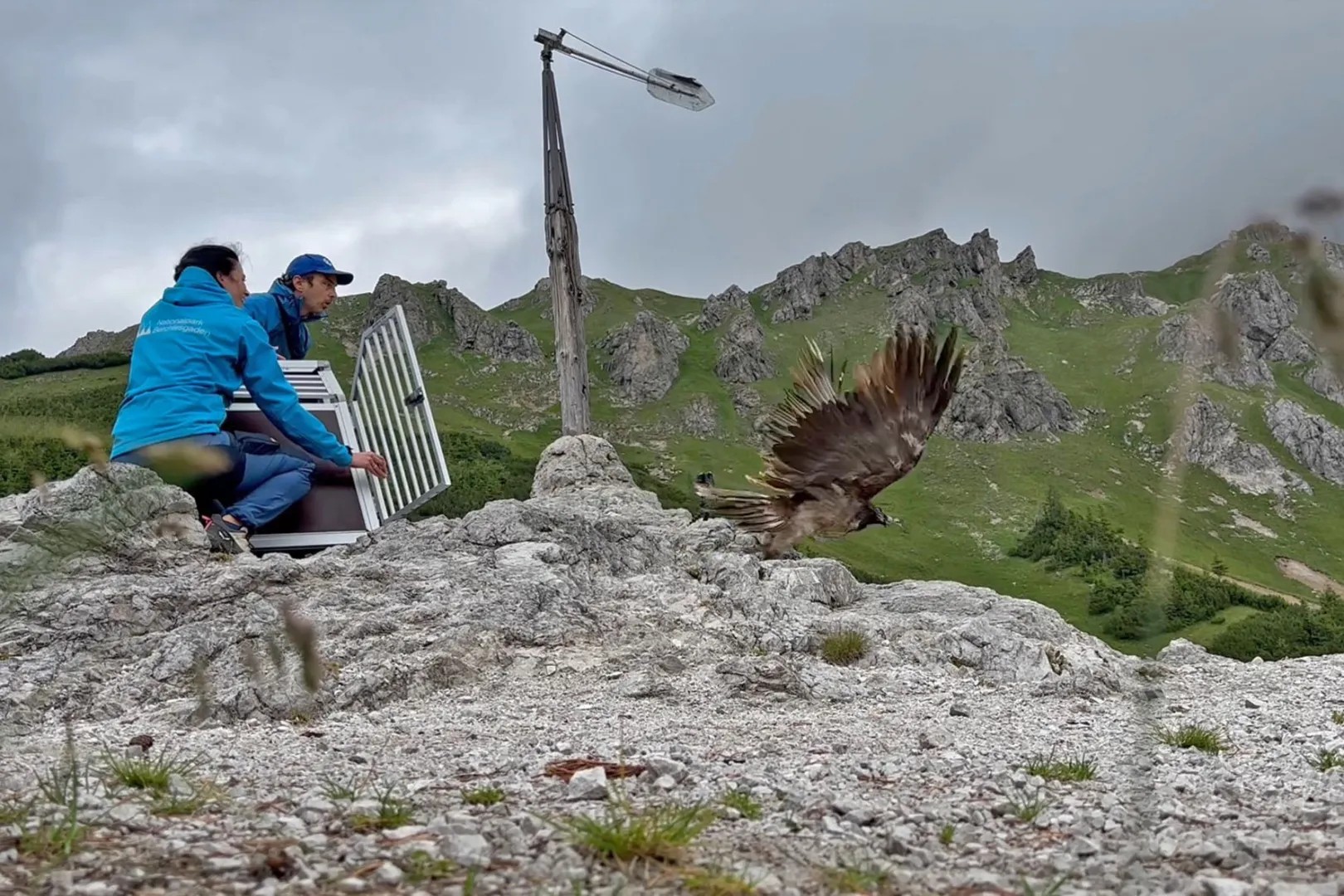This year the VCF and its partners are hoping to release 17 young bearded vultures into the wild in Europe – the same number as last year, and a significant boost to the populations of this species in our continent, that have been benefiting from our work – bearded vultures are now increasing rapidly in the Alps, and are breeding again in Andalusia!
The VCF coordinates the bearded vulture captive breeding network, under a mandate from EAZA (European Association of Zoos and Aquaria), and this year´s breeding season was again very good – a total of 25 young was produced, of which 17 will be released in the on-going reintroduction projects (Alps, Grands Causses-Massif Central and Andalusia), and in one restocking project (Corsica).
The release season will start already this week – on the 2nd May the first two birds will be released in Grands Causses (see invitation), as part of the LIFE GYPCONNECT project aiming to link the growing population in the Alps to the one in the Pyrenees.
Later, in mid-May, two more birds will be released in Baronnies – the westernmost pre-Alps, and in the end of the month four more bearded vultures will be released, two each in Andalusia and Corsica, to boost the local, small and extremely endangered, island population. In June there will be released in Vercors (French Alps), Central Switzerland, and again in Andalusia and Grands Causses.
All birds will be tagged and monitored closely by the VCF and it local partners. To create a healthy wild population, it is necessary to release birds from different blood lines to avoid consanguinity. Consequently, nestlings are transferred through Europe, traveling thousands of kilometres.
The ultimate aim of all these projects is to create a bearded vulture European meta-population, with gene flow between the existing autochthonous populations in Europe (in the Pyrenees, Corsica, and Crete) with reintroduced populations and eventually with existing populations in North Africa and in Asia.
Please watch this space for news about these releases.




